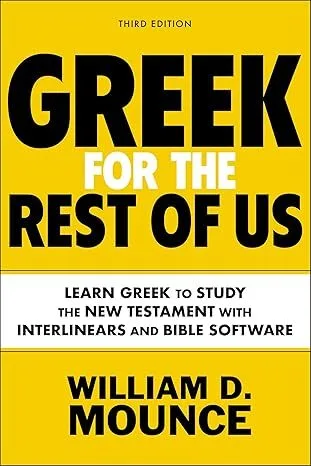Strong’s G4108: A wandering imposter, deceiver, or misleader; derived from πλάνη (plane), meaning “wandering.” In ancient Greek culture, it described traveling charlatans who deceived others for personal gain. In New Testament usage, it specifically denotes those who lead others astray from divine truth.
U- Unveiling the Word

Key Information
πλάνος

Strong’s Entry
g4108
πλάνος embodies a profound theological concept in the New Testament, representing not just simple deception but active misleading from truth. Originally describing wandering imposters in Greek society, it evolved to specifically denote spiritual deceivers in Christian contexts. The word carries weightier implications than mere dishonesty—it suggests a deliberate attempt to lead others astray from divine truth. Early church usage emphasized its role in identifying false teachers and prophets. Today, this term remains crucial for understanding spiritual warfare and discernment, particularly in an era of widespread misinformation and competing spiritual claims.
N – Necessary Information
- Greek Word: πλάνος, planos, /plah-nos/
- Detailed pronunciation: PLAH-noss (emphasis on first syllable)
- Part of Speech: Adjective (used substantively as a noun)
Etymology:
- Root: πλάν- (plan-) meaning “to wander” or “to mislead”
- Suffix: -ος (-os) adjectival ending indicating masculine nominative singular
- Related to πλανάω (planaō), “to cause to wander”
D – Defining Meanings
- Leading others astray deliberately
- Wandering deceiver
- Religious imposter
For compound words: Not a compound word, but derives from the root πλάν- indicating wandering or straying, with the -ος suffix forming an adjective.
Translation Options:
- Deceiver – Captures the active nature of misleading others
- Imposter – Emphasizes the false representation aspect
- False teacher – Specifically in religious contexts where doctrine is concerned
E – Exploring Similar Words
- ψευδής (pseudēs) /psyoo-THACE/ – false, lying, differs in focusing on falsity rather than active deception
See G5571 - ἀπατεών (apateōn) /ap-at-eh-OWN/ – cheater, focuses more on trickery
See G539
R – Reviewing the Word’s Morphology
Adjective/Substantive Features:
- Case: Various (Nominative, Genitive, Dative, Accusative)
- Number: Singular and Plural forms
- Gender: Masculine
- Declension: Second declension
The word follows standard second-declension patterns:
Nominative: πλάνος
Genitive: πλάνου
Dative: πλάνῳ
Accusative: πλάνον
- Cross-references to verbal form πλανάω and abstract noun πλάνη
S – Studying Lexicon Insights
BDAG defines πλάνος primarily as “deceiver, corrupter, misleader,” while Thayer’s emphasizes its wandering aspect. LSJ provides secular usage examples of traveling charlatans. Vine’s connects it to systematic religious deception. Strong’s highlights its development from literal to metaphorical wandering. LEH provides Septuagint context where it describes false prophets. Moulton and Milligan document papyri usage describing fraudulent traveling merchants.
T – Tracing the Scriptures
First appearance:
“Sir, we remember what that deceiver said while he was still alive, ‘After three days I will rise again.'” Matthew 27:63
Additional References:
2 Corinthians 6:8, 2 John 1:7
A – Analyzing Classical Usage
| Author: Work | Text |
|---|---|
| Sophocles: Ajax | “The wandering trickster [planos] sought to deceive with clever words” |
| Demosthenes: Against Aristogeiton | “He was known throughout the city as a wandering deceiver [planos], taking advantage of the credulous” |
| Plutarch: Moralia | “These traveling charlatans [planos] prey upon the superstitious nature of the common people” |
N – Noteworthy Summary
πλάνος serves as a powerful reminder of the ongoing spiritual battle for truth. While used against Jesus by His opponents, it ironically describes those who reject the gospel. The term highlights the importance of discernment and steadfast adherence to truth in Christ, emphasizing that Jesus is the way, the truth, and the life, standing in stark contrast to all deceivers.
D – Did You Know?
- The term was commonly used in ancient Greek merchant laws to describe fraudulent traveling salesmen.
- Early Christian literature adopted this term to specifically identify those teaching false doctrines about Christ’s nature.
- The word influenced modern Greek terminology for conspiracy theories and religious cults.
Strong’s G4108: A wandering imposter, deceiver, or misleader; derived from πλάνη (plane), meaning “wandering.” In ancient Greek culture, it described traveling charlatans who deceived others for personal gain. In New Testament usage, it specifically denotes those who lead others astray from divine truth.
Part of speech: Adjective (used substantively as a noun)
Tags: deception, false teaching, spiritual warfare, discernment, truth, heresy, wandering, imposter, biblical Greek, New Testament Greek, theological terms, Christian doctrine
Note: While this entry strives for accuracy, readers engaged in critical research should verify citations and keyword occurrences in their Bible translation of choice. For Biblical citations, the F.O.G Bible project recommends Logos Bible software.
Strong's g4108
Add Comment
God's Word is too vast for a single perspective. We all have a story, and as believers we all carry the Holy Spirit who is the Revealer. With this in mind - I would love to read your comments.




